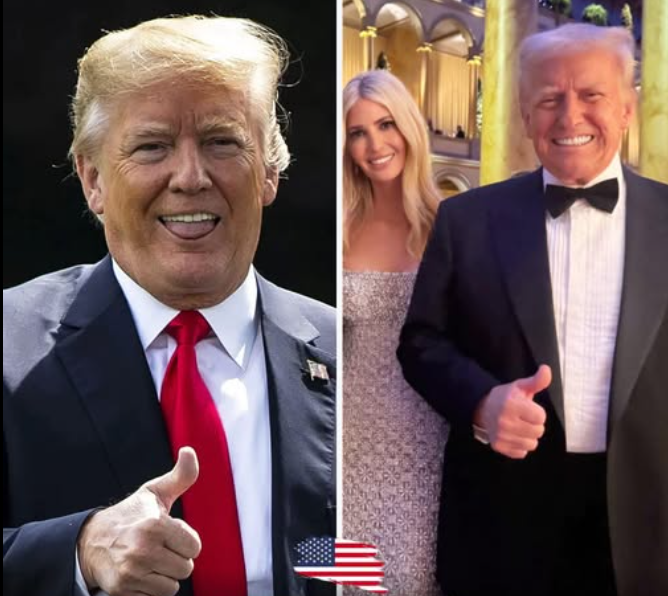President Donald Trump has reached a milestone that no other sitting U.S. president has ever accomplished, setting a new precedent in the history of American politics. This unprecedented achievement has drawn widespread attention from both supporters and critics alike, sparking debates across political, social, and media platforms. While some hail it as a testament to his unique approach to leadership and governance, others view it as a controversial development that challenges long-standing traditions of the presidency.
Trump’s achievement reflects his ability to leverage modern tools, unconventional strategies, and a highly personalized style of communication that distinguishes him from his predecessors. Throughout his tenure, he has demonstrated a willingness to break with established norms, taking bold actions that resonate strongly with his base while simultaneously provoking intense scrutiny from his opponents. This combination of audacity and visibility has amplified his influence both domestically and internationally, allowing him to shape narratives in ways that previous presidents could not.
Observers have noted that Trump’s unprecedented accomplishment is emblematic of a broader shift in the American political landscape, where the intersection of media, technology, and populist messaging has created new pathways for presidents to shape public perception and policy outcomes. Unlike earlier presidents, who relied primarily on traditional media and carefully curated public appearances, Trump has mastered the art of direct engagement with the public, using social media and large-scale rallies to communicate his ideas without the filter of conventional journalistic institutions. This direct approach has allowed him to maintain a constant presence in the public eye and to mobilize support rapidly, even in the face of widespread criticism.
His achievement is not only a reflection of his individual political skill but also a sign of the evolving nature of the presidency itself. The office of the president, once considered bound by formal protocols and historical precedent, is now increasingly shaped by personal branding and instantaneous communication. Trump’s ability to bypass traditional channels, command attention, and generate national discourse around his actions demonstrates a new type of presidential influence—one that is as much about perception and narrative control as it is about policy and legislation.
Historical comparisons inevitably arise when discussing Trump’s accomplishment. Presidents in the past, from Franklin D. Roosevelt to Ronald Reagan, had also left indelible marks on the nation through bold initiatives and charismatic leadership. However, Trump’s method differs in its immediacy and scope, leveraging the speed of modern technology and the intensity of polarized media environments. This allows him to reach millions of Americans directly, shaping opinions and mobilizing support in real time, something virtually unprecedented in presidential history.
The long-term impact of this unprecedented achievement remains a topic of debate. Supporters argue that it represents a new era of political empowerment for leaders who can communicate authentically with their base, while critics warn that it risks undermining institutional norms and eroding the traditional balance of political power. Regardless of perspective, Trump’s record demonstrates that the nature of leadership in the 21st century is changing, with social media, instant news cycles, and public engagement playing a central role in presidential effectiveness.
In summary, President Donald Trump’s unprecedented accomplishment as a sitting U.S. president marks a significant turning point in American political history. It highlights both the possibilities and controversies inherent in modern leadership, showing how the combination of unconventional strategies, direct public engagement, and media mastery can redefine what a president can achieve. His tenure serves as a reminder that the presidency is not only shaped by institutional protocols but also by the vision, strategy, and audacity of the individual who occupies the office. As historians, political analysts, and the public continue to examine his legacy, it is clear that Trump’s unprecedented achievement will remain a defining feature of his time in office and a reference point for future presidents navigating an ever-evolving political landscape.
